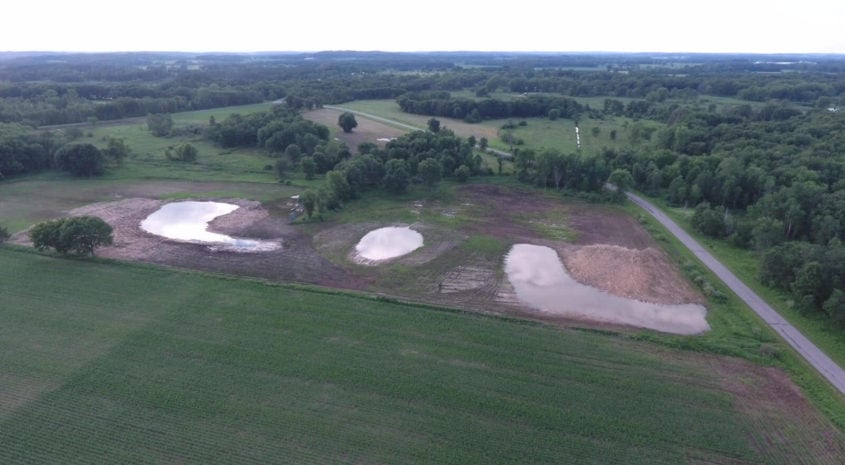Author: Travis Hamele of UC Hamele Auction & Realty
The ideal property for outdoors-oriented people such as hunters and anglers can be a bit off the beaten path. In fact, it can be off the grid entirely in many cases. That means tapping into resources such as water and electricity may not be as simple as hooking up to existing utilities.
The apparent lack of water can seemingly render a wonderful parcel of land into a rough, dry camping site. Fortunately, there are traditional and non-traditional methods to add water to a property and enjoy its full usage. Consider these three ways to add water to your dream outdoors property.
Install An Artesian Well
Artesian wells are simply pipes driven into the ground until they strike underground reserves below the water table. Bring in a well-drilling outfit to test the property for the best potential locations to install a well.
Keep in mind that unlike water provided by public utilities, such private wells require pressurization. In terms of an off-the-grid parcel of land, this may require using solar panels to power a well pump for toilets, showers and other plumbing. If your water needs are less extensive, a hand pump can be fixed at the top of the well.
Dug Wells Still Work
In areas where the water table is relatively close to the surface, dug wells are still an appropriate method of adding water to a property. Properties that enjoy hunting, fishing and vacation cabins near lakes, rivers and streams can readily tap into underground water resources.
Although relatively inexpensive to install, one of the challenges property owners may face is keeping the dug well free from contaminants. Filtration systems and regular testing are good first steps. But lean on the advice of well professionals when taking this old school route. Like the artesian style, a power source will be needed to create pressure.
Rainwater Collection And Cisterns Are Viable Options
Although not the most enviable method of water collection, rainwater can serve basic needs. Roof collection can provide water for basic toilets in hunting and fishing structures. And, there are entire lines of rainwater collection equipment designed to provide potable water as well.
While rainwater collection is far from luxurious or likely to add value to a property in any meaningful way, it can transform an otherwise dry camping property into an outdoors lover’s dream.
The basic point is that people who want to purchase land rich in wildlife have options to create a water source. That makes the parcel both livable and close to nature.


